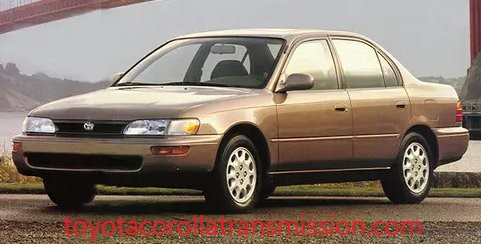Despite its age, the 1993 Toyota Corolla remains one of the best-selling cars in history. Its reputation for dependability and economy helped pave the way for its success.
For 1993, Toyota Corollas were offered in three trim levels. The base model was the 1.6-liter, while those looking for more power could select the 1.8-liter. Manual versions achieved 32 miles per gallon city and 40 mpg on the highway.
Engine
Engines are the heart of your vehicle, so they require regular upkeep to guarantee they keep working optimally. Your 1993 Toyota Corolla 1.8L engine has many components that must be in the correct positions at the right time for optimal power output and fuel economy from your vehicle.
The Corolla offers several trim levels, each featuring its own engine. Choose between the 1.6-liter four-cylinder with 105 horsepower or the 1.8-liter four-cylinder with 115 horsepower for your driving pleasure.
If you’re searching for a small car with plenty of standard safety features, the Corolla is an excellent option. Not only that, but it’s also fun to drive and has earned itself an enviable reputation when it comes to reliability.
Road noise is kept out of the cabin with flush-mounted glass and body edges, tight gaps between panels, and ample insulation. The seats are comfortable and supportive with plenty of head, leg, and foot room for average-sized passengers. Plus, the rear seatback folds down for a spacious cargo area that’s easy to load and unload.
Transmission
The transmission of a 1993 Toyota Corolla plays an essential role in converting engine power into forward motion. It’s an intricate system, working with various gears including the clutch and torque converter to maximize your engine’s potential.
The 1993 Toyota Corolla’s standard 1.6-liter engine produced 105 horsepower and was paired with a 5-speed manual transmission. An optional 1.8 liter, 115 horsepower 4-cylinder was also offered.
Maintaining your transmission’s optimal condition is essential for getting the most from your Corolla’s powertrain. For this, have your local Firestone Complete Auto Care inspect and service your Toyota’s transmission at regular intervals according to manufacturer recommendations.
Other transmission maintenance items to consider are a transmission fluid flush, solenoid replacement and automatic cooling system flush. The latter requires more time due to its extensive cleaning of the entire transmission system; consult your owner’s manual for more details.
Differential
The differential on a 1993 Toyota Corolla is one of the most vital elements in any vehicle, as it transfers power from the engine to your wheels. This ensures you can drive safely and at any speed desired.
Your 1993 Toyota Corolla‘s All-Trac system differs from most front-wheel drive systems in that it uses a locking center differential to distribute torque evenly between rear and front wheels when necessary. This enables your Corolla to handle various conditions like mud, snow or sand with ease.
The All-Trac system utilized a sophisticated network of sensors to continuously monitor traction and adjust transmission output accordingly. A shift lever moderating mechanism improved shift feel, while viscous coupling allowed for locking the transfer case – an uncommon feature in front-wheel drive vehicles.
Brakes
Brakes are one of the most critical safety components on a vehicle. It’s easy to overlook their importance, but maintaining your car’s brakes is essential for keeping it running smoothly.
Your Corolla’s brake system consists of disc or drum brakes, the master cylinder and calipers. These calipers utilize fluid pressure from the master cylinder to compress brake pads and create friction to stop your car.
Over time, calipers may develop leaks around their piston seal or stick pistons inside, leading to uneven wear on brake pads or premature rotor wear.
The Corolla also features Anti-lock Brakes (ABS), which pulse the brakes when a lockup is detected. This helps keep your wheels from locking up and skidding during an emergency stop.

